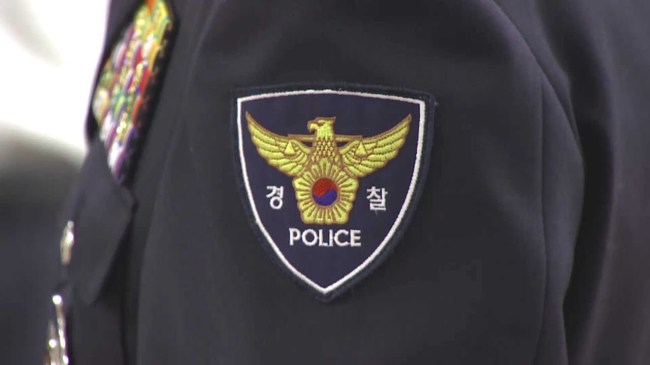[Newsmaker] South Korean police suicides on the rise
Police officers are at risk of mental health problems, but often fail to receive support.
By Bak Se-hwanPublished : Dec. 21, 2017 - 15:16
[Herald Interview] From writing speeding tickets to arresting criminal suspects to calming a knife-wielding drunken man, police officers deal with almost every emergency situation imaginable.

These everyday heroes, however, often end up with mental health problems as they serve and protect the public.
In the past five years, as many as 100 law enforcement officers have killed themselves, 27 percent more than the 79 who died while on duty during the same period. Last year alone, 26 took their own lives, up 44 percent from 18 in 2012.
Nearly half of the deaths were linked to work-related stress, according to the Korean National Police Agency.
Police authorities and society at large should promote better understanding of mental illnesses and provide effective ways to seek help, a police officer who attempted suicide a few years ago said.
“It’s just the nature of our job that we experience traumatic events while on duty. And many police officers have or are at risk of serious mental health crisis,” the senior police officer -- who asked not to be named as he was not authorized to talk to the media -- told The Korea Herald.
After responding to several suicide cases, the officer said he was haunted by the faces of the victims. In addition, a sense of failure for not preventing them from taking their lives before he arrived on the scene led to insomnia and suicidal thoughts for quite some time.
“One of the suicide victims was my daughter’s age. I simply wasn’t prepared for that kind of traumatic experience, and was left with nowhere to go for emotional support,” the officer said.
“It’s still hard for me to talk about it, even several years later,” he said.
As of 2016, South Korea, a country of 51 million, has 114,658 police officers. There are six counseling centers serving police officers, designed to provide free medical treatment and psychological counseling. By next year, nine such centers will be in place and three additional centers are scheduled to open each year until 2021, according to the Korean National Police Agency.
Apart from insufficient mental health services available for police officers, many delay or avoid treatment at the centers out of fear that they might be discriminated against or misunderstood by colleagues, according to the officer.
“They say medical records are kept secret, but sooner or later we find out who received what treatment and why. The fact that one needs psychological treatment is seen as a sign of weakness in a heavily male-oriented culture. So we find a way to get expensive therapy elsewhere at private hospitals and pay out of our own pocket,” he said.
Hope for change
In June, the police reform committee, an independent body of civilian experts, was launched.
Several months later, the committee recommended the establishment of a labor union-like workplace council in police stations to help guarantee the basic labor rights of lower-level officers. By law, police are banned from forming a labor union.
Separately, the National Assembly increased next year’s budget for police welfare by 3.6 percent.
In October, the committee announced a set of reform proposals for the police force, including the improvement of working conditions, such as frequent day-night shifts. It highlighted that the average lifespan of police officers is much shorter than those of people with other jobs.
“Around 80 percent of police officers overwork, along with working on night shifts, while most work more than 40 hours a week on average,” the committee said in a report.
A legislative bill pending at the National Assembly would allow law enforcement officers and firefighters to establish a workplace council, one of President Moon Jae-in’s pledges.
During the annual Police Day ceremony in October, Moon said that police officers “should not be forced to make sacrifices.” He promised to hire 20,000 additional police officers before his five-year term ends in May 2022, as well as increase state support and improve working conditions.
The workplace council will not immediately alleviate work-related stress. But it would create a safe place for low-ranking officers to talk about topics previously taboo in the highly hierarchical police force, experts predict.
Not everyone is sympathetic toward the country’s police force, as the police are often deemed overly politicized and associated with the excessive use of force.
On Nov. 14, 2015, police fired a water cannon toward the public during a street protest against former President Park Geun-hye. Activist farmer Baek Nam-ki was struck by the blast and died of a cerebral hemorrhage after 10 months in a comatose state.
Baek’s death prompted a public outcry. Shortly after Moon took office, the head of the National Police Agency Lee Cheol-seong apologized for Baek’s death, promising to restrict the use of water cannons and ensure the right to peaceful assembly.
Sweeping reform is necessary from the top down to ensure a democratic police system and regain public trust, experts say.
“Police authorities and society should make sure that the police can continue to play a central role in the law enforcement system, which is to serve the public’s best interests. And the responsibility should not only be on police officers alone,” Kwack Dae-gyung, a professor of police administration at Dongguk University, told The Korea Herald.
By Bak Se-hwan (sh@heraldcorp.com)


![[Exclusive] Korean military set to ban iPhones over 'security' concerns](http://res.heraldm.com/phpwas/restmb_idxmake.php?idx=644&simg=/content/image/2024/04/23/20240423050599_0.jpg&u=20240423183955)




![[Pressure points] Leggings in public: Fashion statement or social faux pas?](http://res.heraldm.com/phpwas/restmb_idxmake.php?idx=644&simg=/content/image/2024/04/23/20240423050669_0.jpg&u=)

![[Herald Interview] 'Amid aging population, Korea to invite more young professionals from overseas'](http://res.heraldm.com/phpwas/restmb_idxmake.php?idx=644&simg=/content/image/2024/04/24/20240424050844_0.jpg&u=20240424200058)








